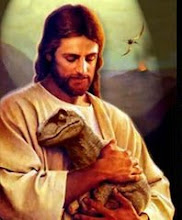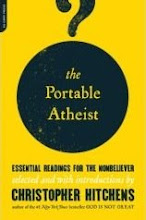Wow, if you have not seen Sarah Palin's interview with Charlie Gibson please watch it. It is a perfect demonstration of what happens when someone is nominated for office with not only very little experience...but very little knowledge. It was painfully clear how she was regurgitating answers from an advisor. It was also obvious that she was coached on how to give an interview. She kept sitting forward and using her hands for emphasis and referred to Charlie Gibson as 'Charlie' repeatedly which helps to make you look like your interviewer's equal. One republican advisor actually said she liked the interview because she felt like Sarah doesn't let 'facts and figures' get in the way. WHAT?!?!?! Facts and figures keep you from invading Iraq for no fucking reason. Facts and figures keep you from drilling for oil in a nature reserve despite the fact that it wouldn't offer any significant help with our current oil/gas situation. OMG, if McCain wins the white house I am going to move to Germany.
Even Matt Damon is pissed.
As a bonus, John McCain was on The View the other day and there were some spectacularly awkward moments. Whoopi asked him if she should be worried about being put back in slavery. Classic. I love Whoopi!
Saturday, September 13, 2008
Friday, September 12, 2008
Honor Killings
Nothing sickens me more than when someone does something horrific and it is defended in the name of preserving old traditions. These girls were buried alive, but the town leaders defend the actions saying they reflect 'centuries old traditions'. If everyone kept that mantra we'd still be burning people at the stake and torturing others for being suspected witches.
Wednesday, September 10, 2008
The Pew Study--what can it tell us about the rarity of the black atheist?
The Pew Forum on Religion and the public life has a very interesting website full of data they collected on americans and their religious beliefs and practices. They studied catholics, jews, protestants, muslims, evangelicals and those who attend african american churches. The study was interesting to me because it highlighted some interesting aspects of the african american religious experience in america. Although I think that defining myself as a black atheist is somewhat arbitrary (I could just as easily have named it the gay atheist, but I didn't want to incite the wrath of god) I thought it was important to self-identify myself given the paucity of other black atheists in america today.
Being a black atheist can be an isolating experience at times. Of all the african americans I know myself and my partner are the only two atheists. The pew study on religion showed that 90% of people in historically black churches are absolutely certain that god exists (compared to 71% of the population at large). Additionally, 7% were 'pretty certain' that god exists while 0% classified themselves as atheists. Although the 0% is obviously not true it hints at just how rare black atheists are. Why are there so few of us out there?
The pew study has a very useful tool that allows for comparison of different religious groups and, somewhat unsurprisingly, african american church-goers rate very high with regards to regularity of church attendance (60% go at least once a week vs. 39% for the US at large). Additionally 85% (!) of african american church goers say religion is 'very important' in their lives compared to 56% of the population at large. It is easy to imagine that it is difficult to develop the independent thinking skills necessary for becoming an atheist with such a high level of consistant exposure. I've met many people in my life that are capable of asking the right questions and display a healthy level of skepticism but these flickers of skepticism never have a chance to grow into the seeds of atheism because the church life is the only one they know. I know that when I left home for college and gradually went to church less frequently I was able to separate myself from that particular lifestyle which was very important in my own personal journey. Many african americans are never in that position, even if they move away from home.
Daniel Dennet hit the nail on the head when he talked about 'belief in belief'. Basically, the idea is that people may not believe everything they say they believe with regards to their theological beliefs but that they believe in believing. I had a friend tell me recently that she was going to an ethics class where they were discussing the accuracy of the bible and she said 'well its just not in me to question it; it is what it is'. From her tone I gathered that, despite her skepticism in the bible, she was just not capable of challenging it. In my experience these types of attitudes are prevalent in the african american community and, considering the level of religious exposure african americans encounter, its easy to understand why.
Is it possible to toss off the shackles of religion when you are constantly exposed to it?
Being a black atheist can be an isolating experience at times. Of all the african americans I know myself and my partner are the only two atheists. The pew study on religion showed that 90% of people in historically black churches are absolutely certain that god exists (compared to 71% of the population at large). Additionally, 7% were 'pretty certain' that god exists while 0% classified themselves as atheists. Although the 0% is obviously not true it hints at just how rare black atheists are. Why are there so few of us out there?
The pew study has a very useful tool that allows for comparison of different religious groups and, somewhat unsurprisingly, african american church-goers rate very high with regards to regularity of church attendance (60% go at least once a week vs. 39% for the US at large). Additionally 85% (!) of african american church goers say religion is 'very important' in their lives compared to 56% of the population at large. It is easy to imagine that it is difficult to develop the independent thinking skills necessary for becoming an atheist with such a high level of consistant exposure. I've met many people in my life that are capable of asking the right questions and display a healthy level of skepticism but these flickers of skepticism never have a chance to grow into the seeds of atheism because the church life is the only one they know. I know that when I left home for college and gradually went to church less frequently I was able to separate myself from that particular lifestyle which was very important in my own personal journey. Many african americans are never in that position, even if they move away from home.
Daniel Dennet hit the nail on the head when he talked about 'belief in belief'. Basically, the idea is that people may not believe everything they say they believe with regards to their theological beliefs but that they believe in believing. I had a friend tell me recently that she was going to an ethics class where they were discussing the accuracy of the bible and she said 'well its just not in me to question it; it is what it is'. From her tone I gathered that, despite her skepticism in the bible, she was just not capable of challenging it. In my experience these types of attitudes are prevalent in the african american community and, considering the level of religious exposure african americans encounter, its easy to understand why.
Is it possible to toss off the shackles of religion when you are constantly exposed to it?
Article in Nature
This is the article that was published in Nature last week. I should of posted the letter in its entirety at first, I forget that I get free access to these things because I am a graduate student.
We were perplexed by your Editorial on the work of the Templeton Foundation ('Templeton's legacy' Nature 454, 253-254; 2008). Surely science is about finding material explanations of the world -- explanations that can inspire those spooky feelings of awe, wonder and reverence in the hyper-evolved human brain.
Religion, on the other hand, is about humans thinking that awe, wonder and reverence are the clue to understanding a God-built Universe. (The same is true of religion's poor cousin, 'spirituality', which you slip into your Editorial rather as a creationist uses 'intelligent design'.) There is a fundamental conflict here, one that can never be reconciled until all religions cease making claims about the nature of reality.
The scientific study of religion is indeed full of big questions that need to be addressed, such as why belief in religion is negatively correlated with an acceptance of evolution. One could consider psychological studies of why humans are superstitious and believe impossible things, and comparative sociological studies of religion using materialist explanations of the rise and fall of the world's belief systems.
Perhaps the Templeton Foundation is thinking of funding such research. The outcome of such work, we predict, will not bring science and religion (or 'spirituality') any closer to one another. You suggest that science may bring about "advances in theological thinking". In reality, the only contribution that science can make to the ideas of religion is atheism.
Matthew Cobb and Jerry Coyne
We were perplexed by your Editorial on the work of the Templeton Foundation ('Templeton's legacy' Nature 454, 253-254; 2008). Surely science is about finding material explanations of the world -- explanations that can inspire those spooky feelings of awe, wonder and reverence in the hyper-evolved human brain.
Religion, on the other hand, is about humans thinking that awe, wonder and reverence are the clue to understanding a God-built Universe. (The same is true of religion's poor cousin, 'spirituality', which you slip into your Editorial rather as a creationist uses 'intelligent design'.) There is a fundamental conflict here, one that can never be reconciled until all religions cease making claims about the nature of reality.
The scientific study of religion is indeed full of big questions that need to be addressed, such as why belief in religion is negatively correlated with an acceptance of evolution. One could consider psychological studies of why humans are superstitious and believe impossible things, and comparative sociological studies of religion using materialist explanations of the rise and fall of the world's belief systems.
Perhaps the Templeton Foundation is thinking of funding such research. The outcome of such work, we predict, will not bring science and religion (or 'spirituality') any closer to one another. You suggest that science may bring about "advances in theological thinking". In reality, the only contribution that science can make to the ideas of religion is atheism.
Matthew Cobb and Jerry Coyne
Subscribe to:
Comments (Atom)
.jpg)


